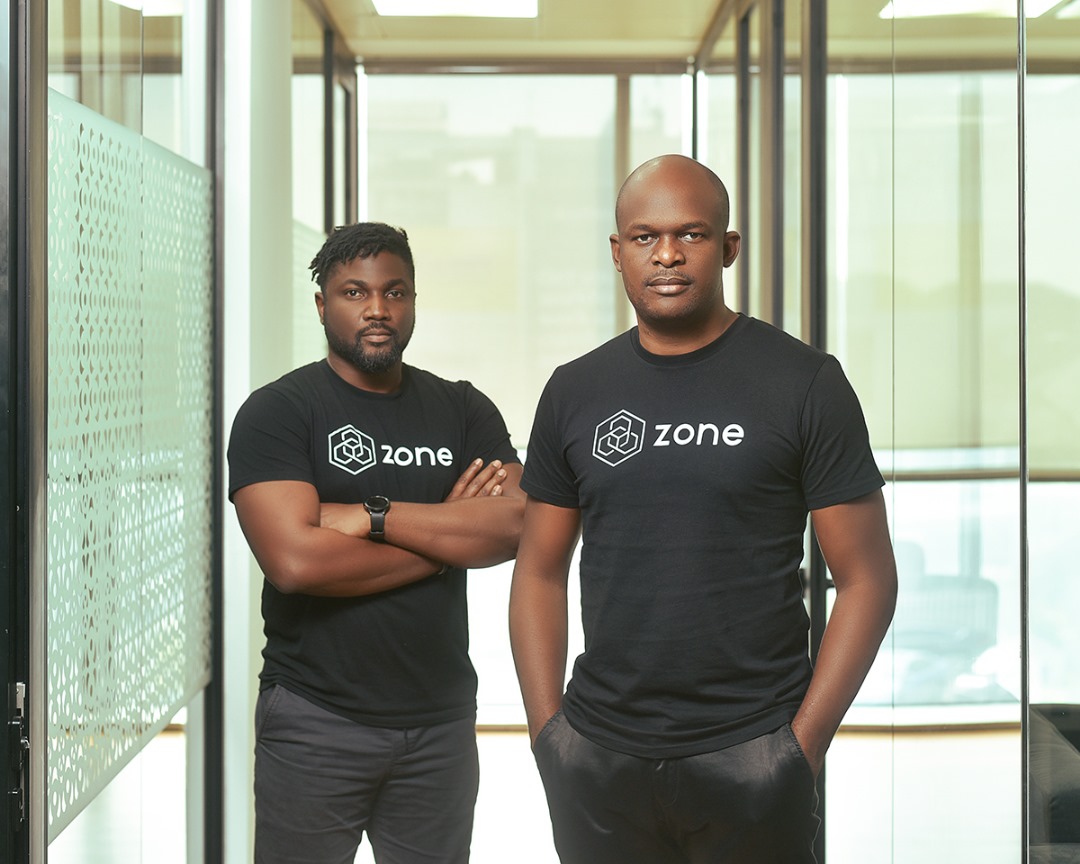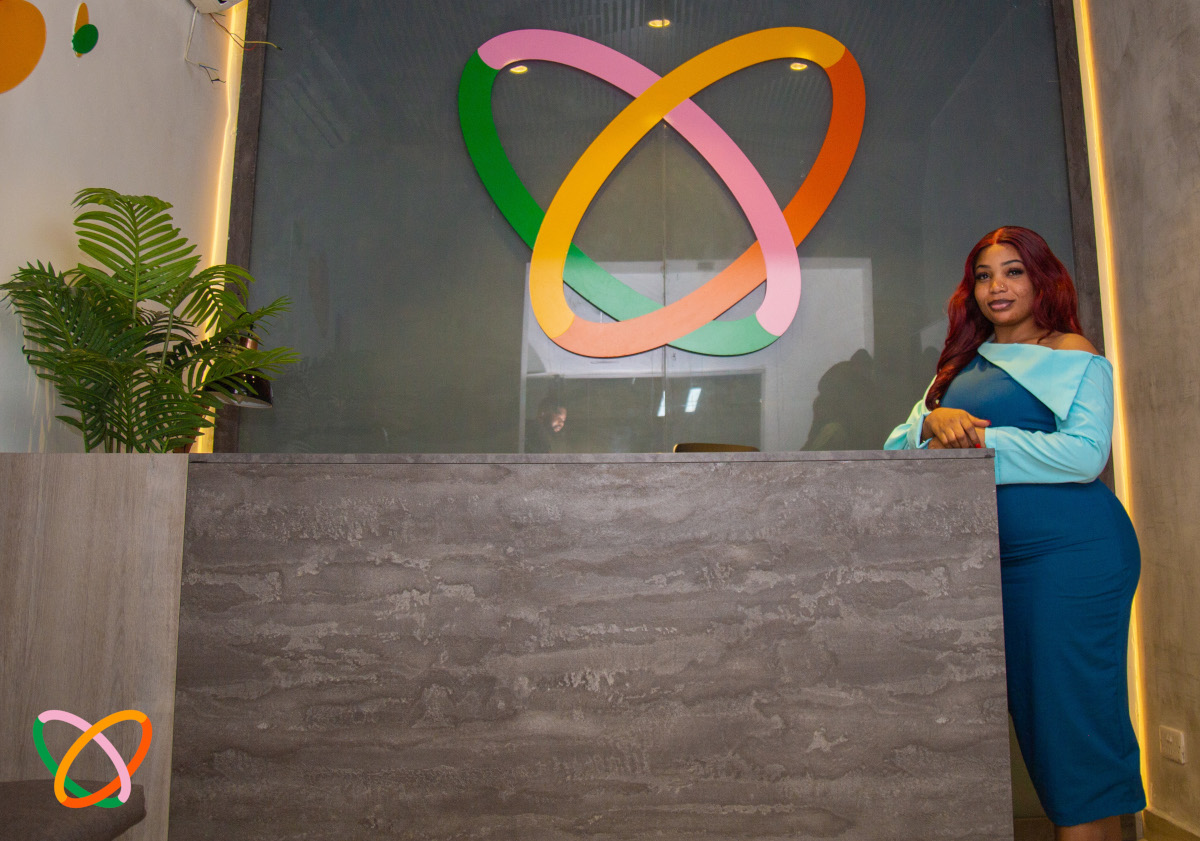The Zone blockchain network might be the most innovative financial technology in Nigeria since the creation of the Nigerian Inter-Bank Settlement System (NIBSS).
The network brings the benefits of crypto such as peer-to-peer transactions to fiat, creating what could be the first blockchain use case for everyday fiat transactions.
The company started 16 years ago by building banking infrastructure. It rebranded to Zone to indicate its new focus on blockchain payments.
Its initial business model still exists as Qore under the AppZone group. Although the company is now into blockchain technology, its other products have recorded success, processing over $2 billion annually for over 500 banks, fintechs, and microfinance institutions in seven African countries.
However, what Zone is proposing with its blockchain architecture could dwarf Qore’s success.
How does blockchain work?

To understand Zone’s mission, it is important to know how blockchains work and what they are doing differently.
Blockchain has many applications, but when it comes to finance, it was created to allow transactions directly between two parties the same way they would via Bluetooth, hence peer-to-peer (P2P).
While this makes transactions faster and cheaper, it creates the problem of double spending. You could potentially send one bitcoin multiple times in the same way you can send files multiple times and still retain them on your device.
This is where the blockchain comes in. It keeps digital records of all transactions to ensure no one can double spend.
However, what makes these records almost 100% immune to hacks is decentralisation, one of the main tenets of public blockchains like Bitcoin.
It means the records are created and stored across a network of nodes. The intricacies of decentralisation and how the networks verify and store transactions are rather complex, but you can delve deeper here.
The Zone network borrows some of these concepts, but to make naira run on the blockchain, tweaks and compromises needed to be made.
How the Zone blockchain works

Obi Emetarom, Zone’s CEO, tells Techpoint Africa how the blockchain infrastructure works, how it excited regulators, and what the future holds for it.
Currently, sending money from your account to other people is simple, works most of the time, and can be fast depending on your financial service provider.
However, there are still times when you’re debited after you send money but the person on the other end doesn’t get it and it takes some time to resolve. Chargeback fraud is also still a major problem.
These are some of the issues Zone’s blockchain wants to solve.
Emetarom says these problems exist because payments are still reliant on a central hub for processing. Adoption of cryptocurrencies could, in a sense, solve this problem, but we all still primarily use fiat and that isn’t changing any time soon.
This is why Zone took “the powerful capabilities of the blockchain, and figured out how to solve these problems for fiat. Rather than what we have now, a star network architecture — hub and spoke — we have a mesh, many to many instead of one to many.”
Many to many can also mean P2P and that doesn’t just mean a direct flow of funds from one person to another, it also means there’s more visibility.
In a scenario where you send money to someone and you do not know if it was successful, you could just check the blockchain and see the status of the transaction in real time.
It is like having access to your bank’s backend.
If you’ve done several blockchain transactions, you know that you can simply check a person’s wallet address and know whether they sent you money, giving a lot of transparency.

Zone wants to do this too.
Emetarom says it’ll also solve the chargeback fraud problem because everyone can see immediately, the status of a transaction.
It also solves the problem of settlement and reconciliation.
“In the old system, the transaction processing was separate from the settlement system. The transaction processing runs for the day then generates a report and sends it to the settlement system. This causes a delay.
“We’ve been able to combine the transaction processing and the settlement system so that the settlement system knows that this transaction has happened and it can be settled immediately instead of waiting for a batch process to send settlement at intervals.”
No intermediaries needed
Like Bitcoin, Zone’s blockchain also removes intermediaries, one of which are the payment switches.
Switches are responsible for routing Bank A to Bank B because banks do not have a direct connection to each other, but “on the Zone network, that role is not necessary anymore.”
A financial service provider that is on the Zone network will become a switch. Each bank has a node that routes the transaction to the right destinations.
This is probably why the company acquired a switching licence in May 2022.
No intermediaries mean cheaper transactions, but Emetarom feels the cost of transactions isn’t the greatest benefit of the Zone network. It’s the user experience.
“If you’re cheap and your benefits are poor, there is no point being cheap.”
Interestingly, some fintechs like Moniepoint and OPay already remove intermediaries to make transactions faster. They use direct card routing, but the problem with this, however, is that each bank has to be routed individually. Being on the Zone network takes away this burden.
The network also stays at capacity because the different nodes only process transactions for their bank. This means Bank A will only see and route transactions that concern it and will not be privy to transactions between Banks B and C.
Tweaks, compromises, and regulation
It is no news that many governments of the world have problems regulating blockchain solutions, with Nigeria currently at war with crypto platforms in the country.
So far, Zone has done a good job of avoiding this war. In fact, regulators in the country are excited by its blockchain solution.
Building banking infrastructure for 16 years probably plays a role in the company’s ability to be on the regulators’ good side but there is a bit more to it.
While Emetarom believes that there can never be mass adoption of decentralised services without regulation, he doesn’t think those services should be fully decentralised.
“We started in a slightly more centralised way, but the product architecture is decentralised, and that’s because of regulation.”
It is not just because of regulation, decentralisation also doesn’t allow you to screen the kind of people entering a network. In the crypto space, for example, some bad actors create scam tokens on public blockchains.
Some might argue that there is transparency with decentralisation, which means you can spot scam tokens, for example, but Emetarom says few people have the technical acumen to understand the information even if it is made public.
There has to be a level of centralisation to solve this problem, which is why the Zone allows central oversight by the regulator whose role is to ensure the compliance of participants on the network.
To get the regulators onboard, Zone had to educate them, helping them understand that blockchain isn’t crypto and Emetatom says they were excited when they understood its capabilities.
Zone also leverages existing regulations, meaning regulators did not have to create a new set of regulations.
But Zone has plans to become more decentralised. It is even working on a whitepaper for what it calls regulated decentralised finance (DeFi), which means new regulations will be needed eventually.
Building blockchain is hard

While Zone touts itself as Africa’s first layer-1 blockchain infrastructure, there is a Bantu blockchain founded in 2020 by Ernest Mbenkum, Victor Akoma-Philips, and Fritz Ekwoge.
Note: A layer-1 blockchain infrastructure simply means the foundational layer of a blockchain network upon which other projects can be built.
Per Watcher Guru, there were 1,000 blockchains in existence as of August 2023. This means Zone and Bantu are the only two blockchain networks created by Africans.
One of the reasons for this is that building a blockchain from scratch is hard.
Former Ethereum Engineer and Co-founder of Polytope Labs, Seun Lanlege, said, during a lecture at the University of London, UK, that building blockchain products requires expertise.
Expertise, which Emetarom also agrees is one of the challenges to building the Zone network.
But the challenges also go beyond talent. There is still the problem most blockchains deal with which is the Trilemma.
The Trilemma refers to the balancing act required to achieve three vital blockchain qualities — decentralisation, scalability, and security.
As it stands, a blockchain can master only two of these aspects at any given time.
Zone will have to forgo one but, with $8.5 million in funding, it just might find a way to do all three.











